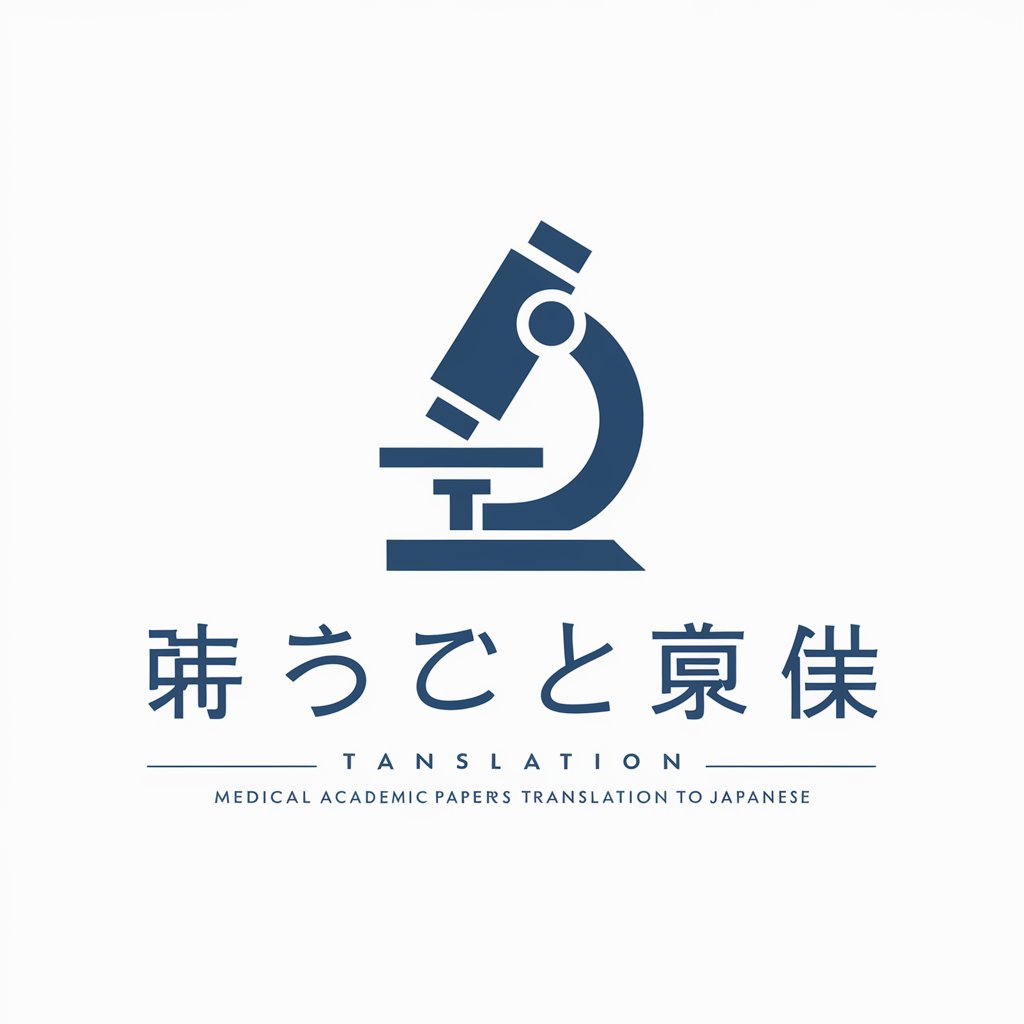
看護研究の論文執筆補助ツール:日本語版 - Nursing Research Assistance

看護研究の論文執筆をサポートします。よろしくお願いします。
Empowering Nursing Research with AI
医療現場における看護師の役割とその重要性について、
質的研究デザインの一つとしての現象学的アプローチに関して、
看護研究における倫理的配慮の具体的な例を挙げながら、
データ分析手法としてのSPSSの利用方法について、
Get Embed Code
Introduction to 看護研究の論文執筆補助ツール:日本語版
看護研究の論文執筆補助ツール:日本語版 is a specialized tool designed to assist in the writing of nursing research papers, particularly tailored for the Japanese-speaking academic community. Its core purpose is to streamline the research and writing process by providing guidance on various aspects of academic writing, from structuring research proposals to adhering to ethical considerations. For example, a user might be guided through the development of a research question based on a gap identified in the literature review, illustrating how the tool integrates theoretical knowledge with practical application. Powered by ChatGPT-4o。

Main Functions of 看護研究の論文執筆補助ツール:日本語版
Literature Review Assistance
Example
The tool provides templates and examples for structuring a comprehensive literature review, including how to synthesize research findings and identify research gaps.
Scenario
A user is working on a paper about the effects of mindfulness on patient recovery times. The tool helps them compile and analyze relevant studies, highlighting trends and gaps in existing research.
Research Methodology Guidance
Example
It offers detailed explanations of various research methodologies, including quantitative and qualitative approaches, and advice on choosing the most appropriate method for a study.
Scenario
A user plans to investigate the impact of nurse-patient ratios on job satisfaction. The tool suggests a mixed-methods approach, providing step-by-step guidance on designing the study and collecting data.
Ethical Consideration Framework
Example
The tool includes a checklist and templates for ensuring all ethical considerations, such as informed consent and confidentiality, are addressed in research proposals.
Scenario
Before conducting a survey on sensitive patient care issues, a user consults the tool to ensure their study design includes proper ethical safeguards and participant protections.
Ideal Users of 看護研究の論文執筆補助ツール:日本語版
Nursing Students
Undergraduate and graduate nursing students who are new to academic writing can benefit from structured guidance in developing their research proposals, ensuring they meet academic and ethical standards.
Nursing Educators
Educators can utilize the tool to mentor students in research methods, literature review, and ethical considerations, enhancing the quality of academic supervision and support.
Nursing Researchers
Experienced researchers in the field of nursing can use the tool to streamline their writing process, ensuring adherence to the latest research methodologies and ethical guidelines.

How to Use Nursing Research Paper Writing Assistant Tool: Japanese Version
1
Start by visiting yeschat.ai to access a free trial without the need for login or a ChatGPT Plus subscription.
2
Select the 'Nursing Research Paper Writing Assistant: Japanese Version' from the available tool options to begin.
3
Input your research topic, questions, or any specific guidelines provided by your institution to tailor the assistant's support to your needs.
4
Utilize the tool to generate or refine sections of your paper, including literature reviews, methodology, and analysis.
5
Review and edit the generated content to ensure it meets your academic standards and incorporate personal insights or additional research as necessary.
Try other advanced and practical GPTs
Mr Williams - Your Homework Buddy
Empowering students with AI-driven academic support

Paw Partner
AI-Powered Dog Training Companion

Tacos! Tacos! Tacos!™
AI-powered taco culinary exploration

Creative Catalyst
Igniting Creativity with AI Power

Coach Kickstart
Elevating Young Teams with AI-Powered Coaching

Social Skill Tutor for Autistic People
Empowering Autistic Youth with AI-Powered Social Skills

Aussie Explorer 🇦🇺
Explore Australia with AI-powered Insights

Dodo Cartoonify
Revolutionizing Photos with AI-Powered Cartoons

Slide Deck Architect
AI-Powered Slide Design Simplified

Investment Strategies for Beginners
Demystifying investment with AI-powered simplicity

Excel Business Pro
Empowering Business Decisions with AI-Driven Analytics

Giornata Mondiale
Explore World Days with AI Insight

FAQs about Nursing Research Paper Writing Assistant Tool: Japanese Version
What is the primary function of this tool?
This tool assists in drafting and refining nursing research papers by providing structured guidance on writing, formatting, and citing references according to academic standards.
Can it help with both qualitative and quantitative research designs?
Yes, it offers support for both research methodologies, including advice on data collection techniques, sampling strategies, and statistical analysis methods.
Does the tool provide help with ethical considerations in research?
Indeed, it includes guidance on ethical considerations such as obtaining consent, protecting participant privacy, and addressing potential benefits and risks to participants.
How can this tool assist with peer review responses?
It offers advice on interpreting feedback from peer reviewers and suggests strategies for revising your manuscript accordingly to increase the chances of acceptance.
Is the tool suitable for non-Japanese speakers writing in Japanese?
While primarily designed for native Japanese speakers, it can assist non-native speakers proficient in Japanese with academic writing conventions specific to the Japanese context.






